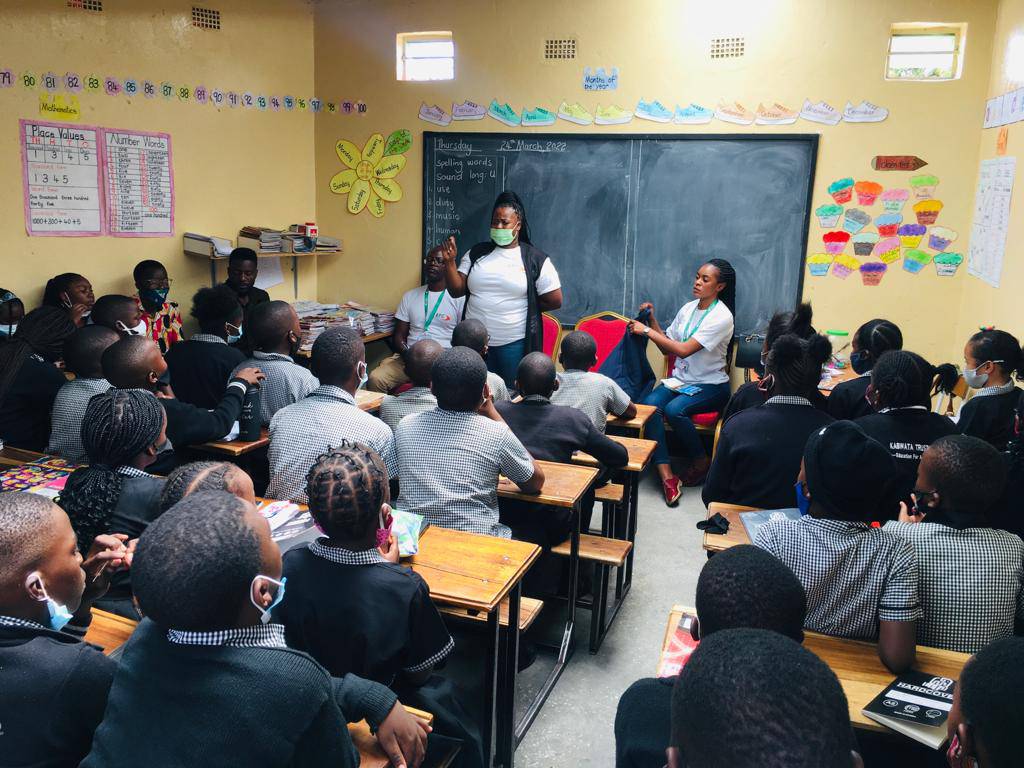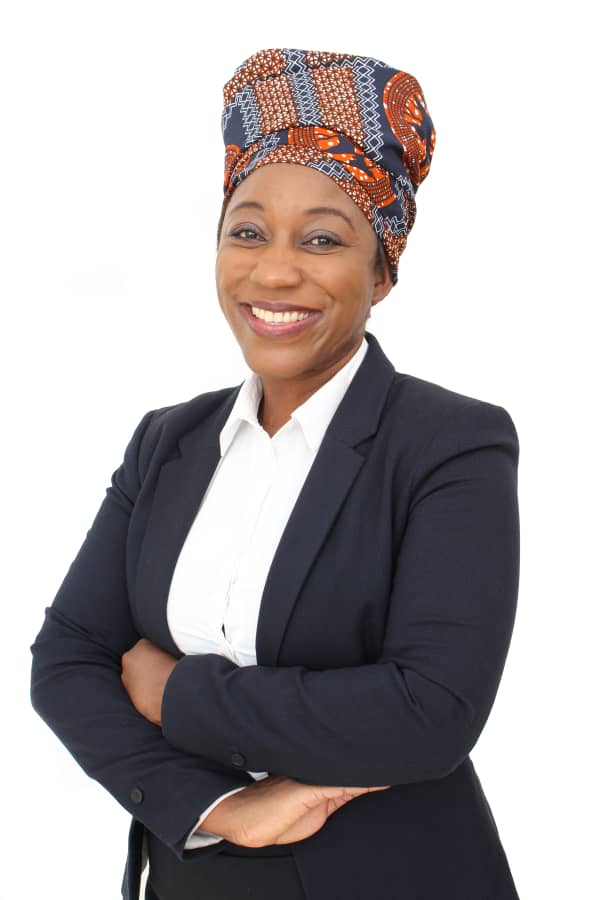This blog was originally published on edufinance.org
Entrepreneurs Financial Centre (EFC) is one of Zambia’s leading micro-finance institutions. EFC Zambia is committed to contributing to the development of the country’s private sector by providing increased access to financial services. Their EduFinance products include School Improvement Loans, Teacher Loans, School Fee Loans and Edu-Save.
Chilufya Siansangu is Head of Business Development/ Marketing and Communications for EFC Zambia. Her role involves driving business growth by identifying opportunities, tracking new markets, strategic partnerships, and building sustainable client relationships. She has a wide range of responsibilities for expanding EFC Zambia’s customer base. She recently attended the Global Education Finance Conference, hosted by Opportunity International EduFinance and was able to share a range of perspectives on building education finance products and clients.
For International Women’s Day 2023 we spoke with Chilufya about her own experience of education and how to create better opportunities for educating women and girls.
WHAT DO YOU ENJOY ABOUT YOUR ROLE?
What I enjoy is that it cuts across all business functions and also involves client relationships, onboarding new clients, and maintaining existing ones. I enjoy that a lot because obviously in any business if you don’t take care of clients then obviously you are headed for closure.
It’s gratifying to see small and medium businesses grow and to see that a business can actually employ other people who also look after families and improve their livelihoods.
THIS YEAR’S INTERNATIONAL WOMEN’S DAY HAS THE THEME ‘EMBRACE EQUITY, A WORLD FREE OF BIAS, STEREOTYPES, AND DISCRIMINATION.’ WHAT DO YOU THINK ABOUT IT?
I think it’s a brilliant theme. First and foremost, it does capture the challenges that women face. It highlights the importance of recognizing and addressing the systemic barriers that prevent women from reaching their full potential.
It emphasizes the need to challenge existing stereotypes, beliefs and attitudes towards women – in the Zambian community, there is a stereotype that a woman is not supposed to be educated, the woman is supposed to tend to their children and do the housework, while the man goes out there to work and excel in his career.
But it’s not like we can’t. We are very much able, it’s just these stereotypes that we need to get over for us to realize our full potential. I think the struggle continues, but I think with all the consolidated efforts, the celebration of women. I think we’re on the right path and we should not stop.
WHY DO YOU THINK IT’S IMPORTANT TO INVEST IN EDUCATION?
The education agenda is really big for me. The point we are missing nowadays, I think most young people, just want to be schooled and not educated. Education has to go beyond, it has to change behavior, it has to change the whole being, and there must be some transformation.
I would mention that education is an equalizer, especially in our communities. It’s very, very important that we invest in education.
When we invest in education that encompasses the education of women and girls it changes the narrative because there’s economic growth. And by investing in education, individuals can acquire skills and knowledge needed to secure a better future, and better-paying jobs. At EFC this is our core business. We are an enterprise lending institution and with education, you can create better entrepreneurs.

WHAT WAS YOUR OWN EXPERIENCE OF EDUCATION?
When I was 2.5 years, I was involved in an accident, and I was badly burnt. When my father took me to the hospital, the doctors said, ‘no, this girl is not going to make it, start arranging for a funeral’. And you don’t tell a parent that. My father said, ‘I want you to see her before you start making those conclusions because I believe she’s going to be okay.’
My father was very prayerful. I started healing which shocked the doctors because the burns were deep. After realizing that I was healing, they did tell my parents ‘Look, yes, she’s healed, but she’s going to have a learning disability. She needs special education. She will not be able to cope like other children in school.’
I spent years in the hospital and my father was very determined that I was going to get a normal education. Eventually, I started school and he used to tell me ‘Against all odds, you’re going to be brilliant.’
Even though I started my first grade a year late, I became so good that I skipped a grade. I was able to catch up with my friends and when I finished my O-Levels, I won a scholarship to study for the International Baccalaureate at Hastings College in England. I used to remember my parents’ support, and I won awards including the best student.
Next, I was awarded a scholarship to Princeton University in America, but I couldn’t attend as the scholarship was only 50%, and I couldn’t afford the other 50%. So, I decided to self-sponsor myself in England, I did accountancy at the London School of Accountancy. I used to do part-time work in Hastings in a care home before I returned home.
I always encourage the women I work with and tell them that because of education, I’ve been able to help my parents, my family, and the people that follow me. No matter what anybody says, you can do it if you believe in it, and education has a lot to do with that.
WHY DOES IT MATTER TO EDUCATE GIRLS?
Once we empower girls and help to promote gender equality, we are doing more for the economy than we could imagine. It goes beyond normal living, it includes improving their health, and careers. Without proper education, it’s quite difficult to get very far in life.
There’s also the aspect of economic growth. Educated girls are more likely to enter the workforce. When I’m taking part in interviews, I found that girls are doing much better in school than boys, because they are more focused. In terms of reducing poverty in our communities, when we have more educated girls, families are more likely to benefit.
WHAT CHALLENGES ARE HOLDING GIRLS BACK FROM GETTING AN EDUCATION IN ZAMBIA?
There are quite a few reasons that are holding back girls from getting educated and this includes a lack of access to the proper education infrastructure. We have situations where girls in the village must walk miles and miles to get to a school. In most cases parents themselves opt to have their boys educated versus their girls, because of the security concerns that come with long distances. Many parents prefer to have their boys be educated over their girls, as boys are usually the ones they think must ‘feed the family’.
Another issue is gender-based violence. Some girls do experience sexual harassment, physical violence, and verbal abuse at school which means it can be safer for them to stay home.
I think the narrative is changing now, but we need more role models, more female teachers, more female CEOS, and more female doctors. I think this is a very important job for women that are already in successful positions, to encourage these young girls to get a proper education.

WHAT CHANGES DO YOU THINK COULD HELP GIRLS IN ZAMBIA?
There are still issues with sanitation facilities such as a lack of clean water. Girls need facilities to be able to take care of themselves properly during their periods.
Implementing general policies to support girls more, can also help a lot. There are non-governmental organizations that are very vocal about supporting girls. They are helping, but I think there’s more to be done at the governmental level.
At EFC we have financial products that can help communities, as we have found that many families cannot afford to pay exorbitant school fees. Through these products, we have found that girls can enroll in schools and access education, as we support schools as a financial institution.
Education is very important, Nelson Mandela said, ‘education is the most powerful weapon you can use to change the world’.
For me, this is a reminder that true education needs to change behavior. It is not just about having degrees. What is key is what has education done for you in terms of behavior and what is it that you’re able to do better that you couldn’t do without that education.


